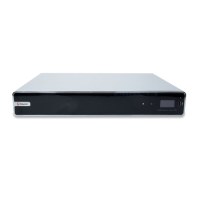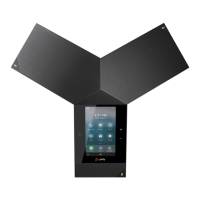System Commands
Polycom, Inc. 224
sys_id_stri
ng
The unique identifier string for an endpoint.
When the client retrieves the members of a
group or searches by name, the results will
include a list of people or rooms and the
endpoints or systems associates with each
of those entries. Each endpoint will have a
sys_id_string which can be used to
query for the endpoint’s address
information. For multi-codec systems, the
sys_id_string will include multiple
sys_id entries, one for each codec,
separated by a # delimiter. For LDAP, the
sys_id will be the LDAP commUniqueID.
It should be a quoted string. See examples
below.
✓
sys_id This is the unique identifier for a codec. If
an entry has just a phone number and no
video codecs, this attribute will be blank.
✓
sys_name The friendly name for an address book
entry. It is the name of the person or the
room. It is surrounded by quotes if it
contains spaces.
✓
sys_label If a person/room has more than one
system, the result set will include a row for
each system. If those systems are of the
same type, the client will consider that
entry to be a telepresence system with
multiple codecs rather than separate
systems. If the systems are of different
types, then this sys_label attribute will
be included to differentiate the systems.
✓
type The type of global address book entry.
Possible values are:
video, multicodec, phone.
✓
h323_spd The preferred speed for an H.323 call to
this entry. If no speed is associated with the
entry, then the value of the configuration
variable "globaladdrmaxh323" is
returned. The default is 384.
✓
h323_num For LDAP entries systems currently do not
use this field. It is always blank.
✓
Parameter Description
User
Accessible Additional Restrictions
